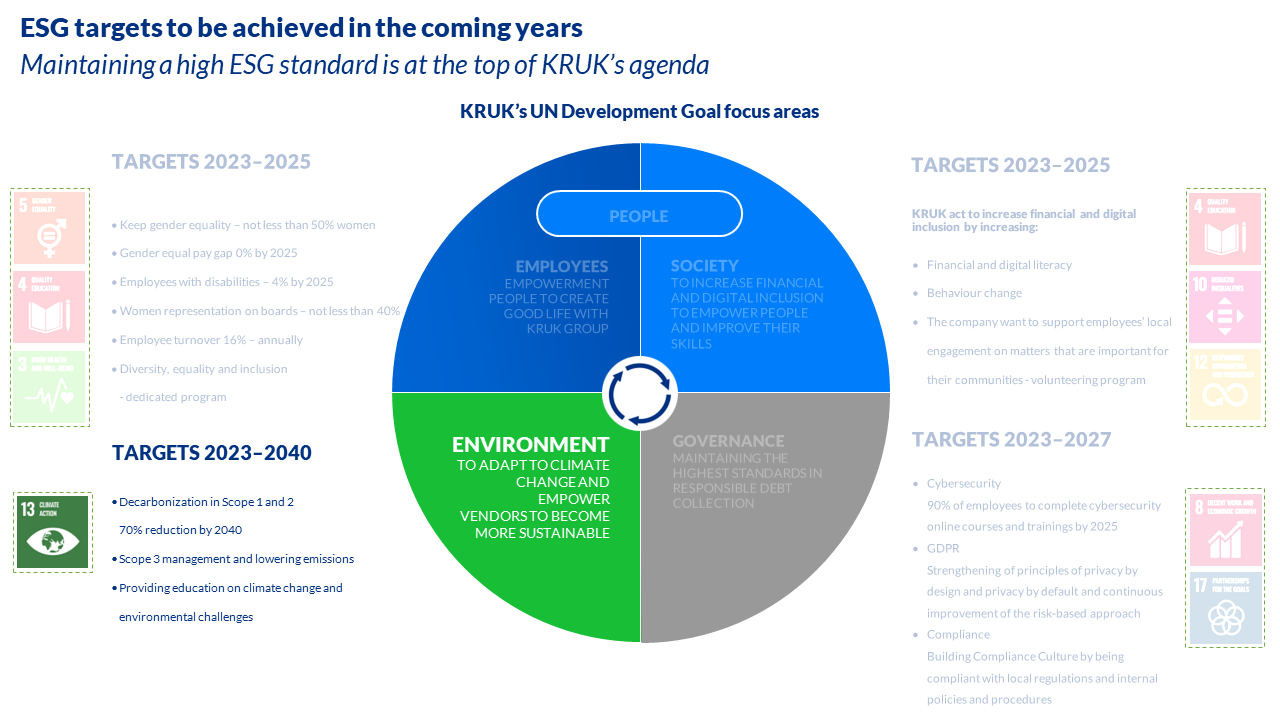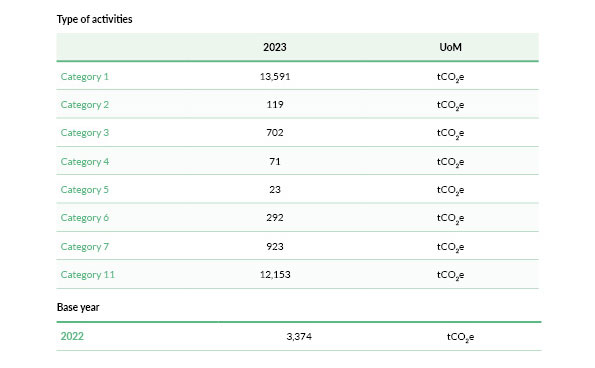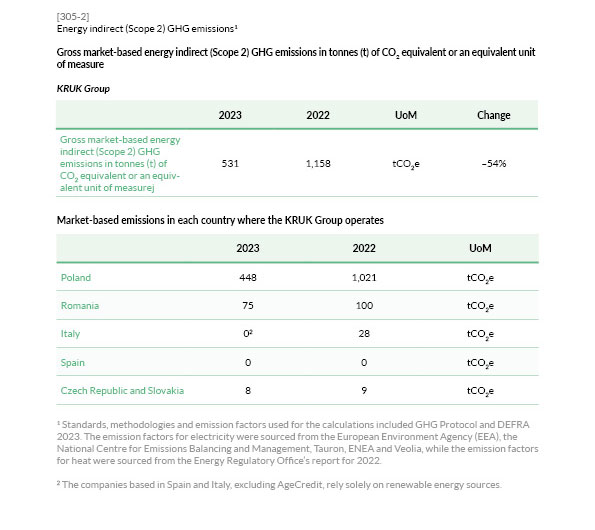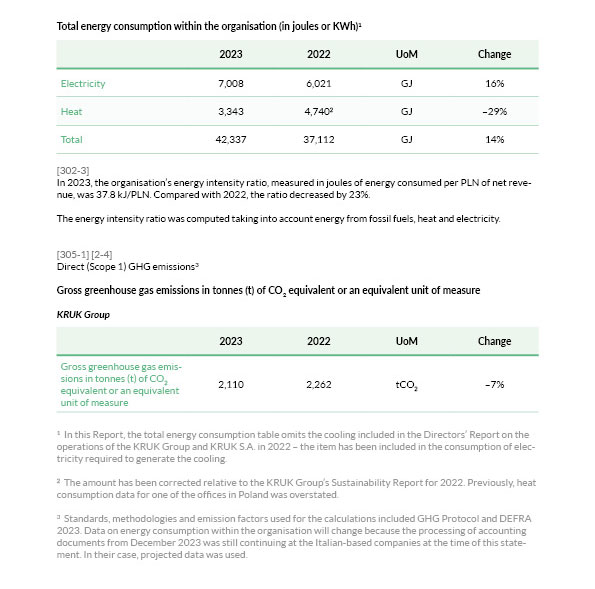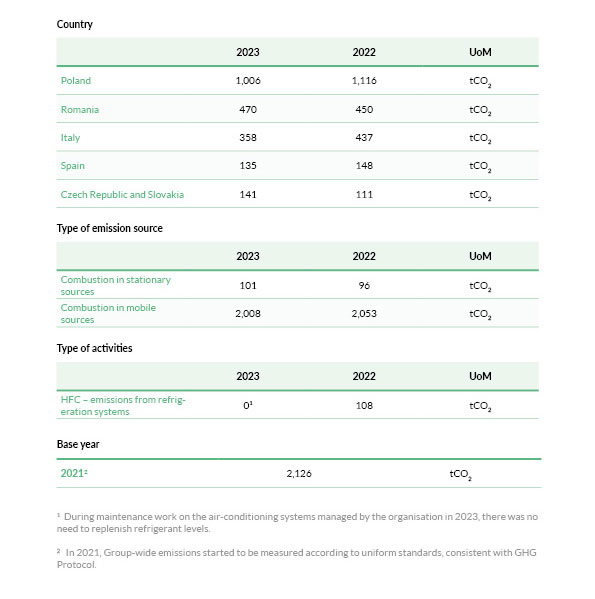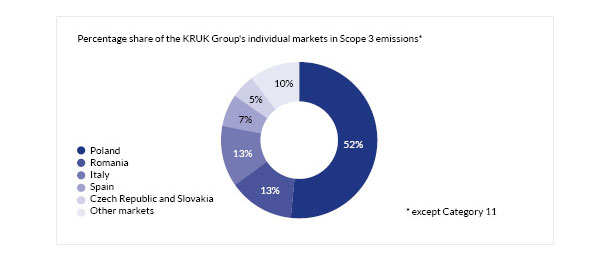- STRATEGY
-
GOVERNANCE
Building Compliance Culture by being compliant with local regulations as well as internal policies and procedures.
Strengthening sustainable development by diligently adhering to data protection regulations.
Maintaining the highest quality of a multi-layered cybersecurity model for data and system protection.
-
PEOPLE
Integrating people-centered processes, strengthing our culture and growing as leaders to become an employer of the first choice.
Tackling financial and digital exclusion by building awareness and improving skills in society.
-
ENVIRONMENT
We are adapting to climate change, monitoring our environmental impact, measuring our carbon footprint and energy consumption.
We share knowledge and build awareness among employees, customers and vendors.
- ETHICS AT KRUK
- POLICIES
- SANCTIONS
- REPORTS


